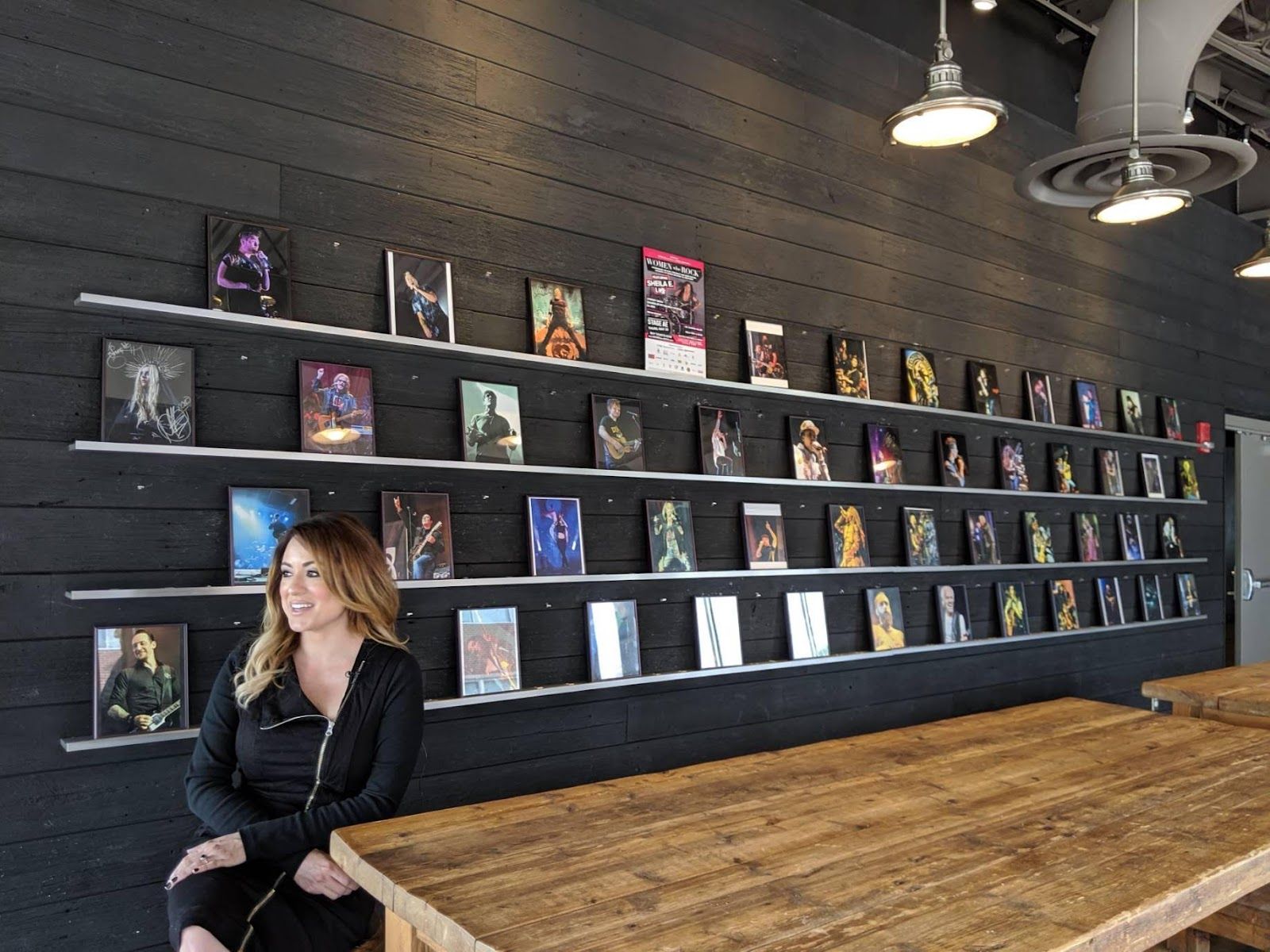We all love to entertain ourselves and refresh our minds by listening to music, some of us even love to groove along with it. Music is one of the best medicines to treat your mind and soul! Not only this, music holds the potential to change the world for the better! Many artists create music for social causes. Meet Melinda Colaizzi who has been doing something similar for six years now through her music company – Women Who Rock!
Melinda Colaizzi started the Women Who Rock initiative in the year 2015 with the vision to reach out to women on a large scale to educate, extend support, and provide funds for women-oriented health issues and also to uplift the women in the music industry.
Melinda is a well-experienced songwriter and music performer with more than 15 years of experience in the entertainment industry. Not only this but she is also an adjunct professor at Point Park University, Pittsburgh, Pennsylvania. A real-life wonder woman, right?
Interview With Melinda Colaizzi
The Voice of Woman recently got in touch with the marvelous, super talented Melinda Colaizzi to know more about her passion for music, her journey from being a performer to being a part of the management in the entertainment industry, and lots more.
1. When did you realize that music was what you wanted to do in life?
Music has always spoken to me. It all began when I was only 5 years old and I started taking piano lessons. At the age of 13 when I got my first electric guitar and started singing, that’s when I knew I wasn’t picking music as a career, it was picking me.
2. How did you go from being a performer to eventually being involved in the business and management part of the entertainment industry?
You often hear that most musicians are somewhat put off by the business side of the industry, but I always loved both the performance and business side. When I attended Berklee College of Music, I selected my studies to focus both on vocal performance and music business.
I felt that as an artist it was so important to understand the business side of this industry and I also feel it has been tremendously beneficial to the business side of my career – understanding the artist side of things, especially when I’m booking and producing the Women Who Rock benefit concerts, and when I worked at Live Nation assisting with sponsorships for some of the largest global tours.
Music is a business and even if you’re 100% focused on creating and performing music, you have to understand the basic business fundamentals or you can make really bad deals for yourself and your band.
3. Did your experiences of performing on stage add to your confidence as an entrepreneur?
Absolutely. I feel, being on stage since I was a young girl helped me with a few things, including connecting with people, public speaking, always working to hone my craft. Being a musician is being an entrepreneur. As a musician you are constantly creating and developing new ideas, you have to wear many hats, and always be open to new ideas.
4. What challenges did you have to face while establishing your company, Women Who Rock?
It’s hard to find balance and know when to shut off when your company becomes your life and you’re so passionate about the issues you’re working to change. We still have a lean operation of 2 people, but seeing the growth and impact we’re making in the lives of women, the awareness and funds were raised for women’s health, and the incredible community we’ve created for female musicians makes it all worth it and every day is filled with purpose, passion, and creativity.
 Melinda Colaizzi
Melinda Colaizzi5. There is still sexism in the music industry. For example, women are often taken less seriously as artists, when compared to men. What do you think can be done to make the music industry a more inclusive space for women?
I started WWR to create a space to empower and shine a spotlight on women in the music industry. However, the long-term goal is that we can get to a place where that’s not necessary, to get to a place where the playing field is level and we don’t have to specify ‘female’ musicians, there are just ‘musicians’.
For now, having all-female lineups and featuring female musicians keep the disparity in the conversation. We have to talk about it, we have to put it in people’s faces, that’s the only way to affect change. I think people are listening and finally starting to wake up, but it’ll be a long road to equality.
6. As a musician, how do you deal with creative blocks?
This is always a challenge to overcome. When I first started writing original songs, I couldn’t figure out why I had so many blocks, then I realized that I wouldn’t let myself just create. No judgment. No pressure. No expectations. After I realized that even the best songwriters in the world write bad songs, then I realized it’s more of a process of showing up consistently, letting an idea develop even if the result isn’t a song I love, and that it does take time to hone your craft and sound as an artist.
7. Through Women Who Rock, you organize benefit concerts, the proceeds of which go towards Magee-Women's Research Institute. Why do you think we as a society need to focus more on women’s health research?
Women carry 100% of the future, therefore women’s health is EVERYONE’S health. The underrepresentation of women’s health is extremely similar to that of the music industry, and I think the course of action needs to be the same. Focus on women’s health, talk about it, put it in people’s faces to keep it in the conversation to affect change in this space too. If women aren’t healthy and strong how can they perpetuate the entire population? Women’s health is essential to the survival of mankind.
8. Your benefit concerts create a common space for the arts and sciences to support each other. Do you think such joint initiatives are becoming more and more important in today’s age?
The whole mission of WWR is a joint initiative between women in music and women’s health, so it only feels natural for that to be a through-line in all that we do. We use the power of music to shine a spotlight on women’s health.
 Melinda Colaizzi
Melinda ColaizziI think this year more than ever has made it clear how much we all need each other, how much our actions affect each other, and how important listening to science is. Everyone can flourish so much more if we all work together and support each other, across industries, identities, disciplines – we have to come together.
9. You are someone who has been both a student and a professor of a creative subject. According to you, how can children be encouraged to explore their creativity from a young age?
Two things children are never in short supply of – creativity and energy. Give them the tools, space, and encouragement to explore and they will take off. Let them try all of the things that interest them. Most will fall away, but they will naturally hone in on the thing that could become their greatest passion in life.
10. What message would you like to convey to our readers at The Voice Of Woman?
Action. The message for women right now is ‘goals’, ‘vibes’, and the confidence to get everything you want and I am here for that 100%, but you have to take action and work hard towards your goals.
Make a connection, send an email, do some research, buy a relevant book – following all these steps will get you closer to your goal. When I started on my WWR journey, I had no idea how it would look one to two years down the line, but I just kept taking actionable steps forward. That has to be the message, take action.
~ Melinda Colaizzi
Also read- NAVAMI Founder Shweta Singh

